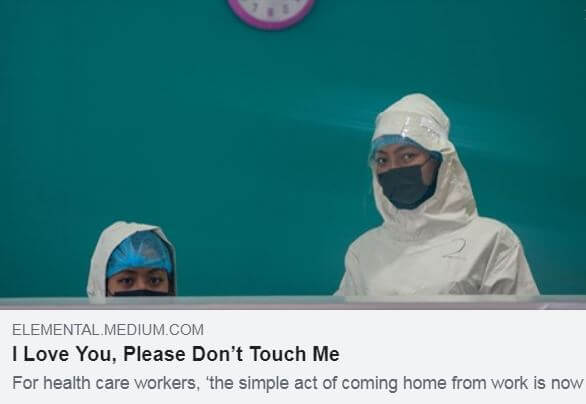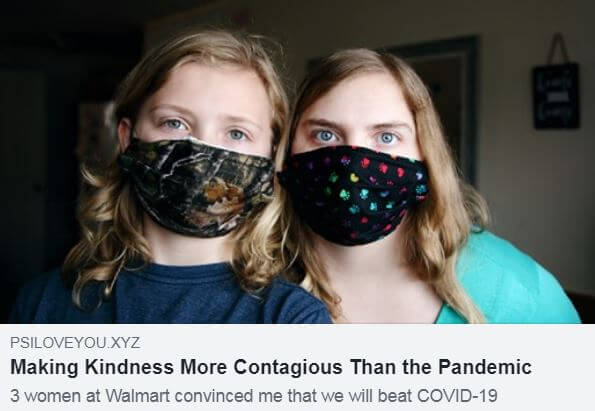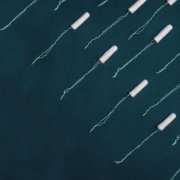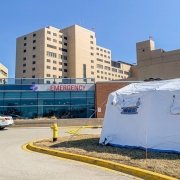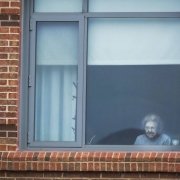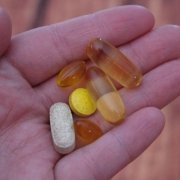How Far Would You Go to Save Another Person’s Life?
The silent spreaders of COVID-19 are key to stopping the pandemic.
A Jewish traveler lay stripped, beaten, and left to die on the side of the road. Two high society members walk past the man, moving to the other side to avoid him. A Samaritan saw the injured man. He stopped, tended to his wounds, and carried him to an inn for food and shelter.
Are you the Hero in the Good Samaritan story? Drowning child — throw a life preserver. A man choking on his steak — Heimlich maneuver. Absolutely, we would rescue the women from a burning car. We would even save the cat from stuck up in the tree. We tell our friends, “I will catch you if you fall.”
In our minds, we are future heroes in these dramatic life-saving situations. When active intervention is needed, we all believe we would step up and rise to the occasion.
But what happens when saving a life is less exciting? What if your heroic efforts are so subtle no one would see it? Or even notice? What if the person whose life you saved was not even aware?
What if you saved a life from simply covering your face in public?
 Photo by Budagchin Erka on Unsplash
Photo by Budagchin Erka on Unsplash
Who are the silent spreaders?
As we reopen the world during this phase of the Coronavirus pandemic, please remember, ANY one of us may be an asymptomatic carrier. An asymptomatic carrier is someone who has the virus and does not know it.
Some people are carriers of SARS-Cov-2 and may spread the virus before they develop symptoms. Others may pass the infection to another without ever developing symptoms at all. These are the silent spreaders.
Without testing, we do not know who is a carrier and who is not. In the absence of comprehensive testing data, we can not determine the extent of the silent spreader problem.
Until widespread testing is available, the safest course of action is for every American to live as though we are all asymptomatic carriers. The sad truth is any one of us may be shedding the virus and putting other’s life at risk.
For health care workers, we wear a mask throughout the day. Our mask gets hot, sweaty, and sometimes feels suffocating. Masks are uncomfortable and inconvenient, but we cover our faces to protect our patients.
For us, the simple act of coming home from work is now a potential threat to our loved ones. We undress in the garage after a hospital shift and avoiding hugging our children. Like the rest of the world, we are practicing social distancing. Except with a cruel gut-wrenching twist: our family must distance themselves from us.
What if you were the vector?
How would you live your life differently if you KNEW you were a COVID-19 carrier who could infect and kill others? I believe the vast majority of humanity, knowing they were contagious, would be willing to do whatever it took to avoid infecting someone. I am not so confident most are willing to make small sacrifices to protect others without confirmatory testing indicating carrier status.
During my recent trip to the grocery store, only about half of the customers wore masks. I thanked the grocery store attendant for wearing one to keep us safe. She proudly told me, “I would not wear one if they did not make us.” I wanted to remind her, “I wear a mask to protect you, and you wear yours to protect me.”
 Photo by Tai’s Captures on Unsplash
Photo by Tai’s Captures on Unsplash
We are all ready to open the economy. Who does not want Margarita’ s on the patio at Gloria’s Cantina, a trip to the mall, and a backyard barbeque with friends? I want to resume elective surgeries. My children are dying to go to summer camp.
As some states move to ease restrictions and reopen local economies, scientists warn us to continue hand hygiene and social distancing. The Centers for Disease Control and Prevention also asks all Americans to wear a nonmedical face mask when out in public.
Some feel this is an unnecessary step or an imposition on personal freedom. A friend recently shared her proud protest march into Costco. Bypassing the guards requiring face covers, she shopped celebrating her freedom not to wear a mask.
She’s a nurse.
Her potentially tragic protest crushed me.
Wearing a mask is not about protecting yourself. It is not about you. A face covering is now an act of kindness toward others.
Protesting a face cover is not an act of courage or a demonstration of freedom. It is not a political statement. A mask is a way to show others we care. A face cover acknowledges that any one of us may be an asymptomatic carrier, a silent spreader. It is a small inconvenience and a minor alteration in our life potentially saving someone else.
Be the Good Samaritan.
The ONE thing you can do to protect others is to wear a face cover to show others you care.
My mask protects you. Your mask protects me.
It is an act of kindness.
Thank you to ILLUMINATION for publishing this article on Medium.
Blog Author: Dr. Jeff Livingston
Blog Photo By: King Lip on Unsplash

